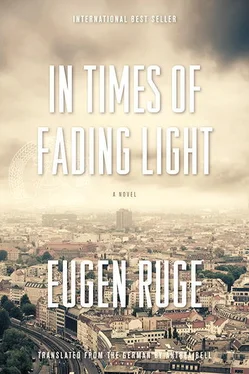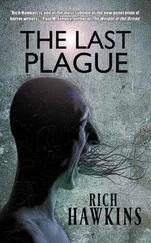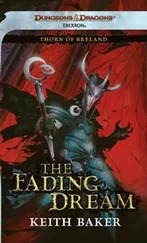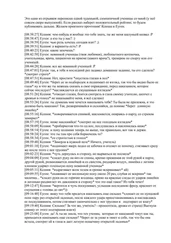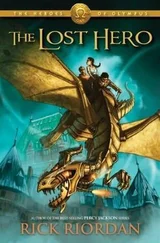For a while it all balanced out: sadness and attraction, the tugging sensation within him and the excitement lower down, the Party Organ and the Opposition, thought Kurt, but when, in a long, clunky sentence (really imparting only the information that Wilhelm had been second in command of the Berlin Red Front Fighters’ League), the speaker ran through the 1920s, with logical consistency leaving out the league’s crushing defeat in the year 1933, the Opposition in Kurt’s pants gradually gained the ascendancy, and while the assembled company sat in rigid solemnity, while the two tubby barrels tilted their heads reverently to one side, while Till slept (unless he was rehearsing for his death mask), while Harry Zenk tried to yawn without opening his mouth, in his thoughts Kurt was down in Wilhelm’s Party cellar and had been there for some time. Anti-Fascist resistance, said the speaker, while Kurt engaged in some hasty activity in which the long table for meetings played a certain part; the images were blurred, he saw nothing really distinctly but the pattern of the pantyhose, or more precisely the smooth part above the pattern, he didn’t know its name. Illegality, said the speaker, and when, a little later, Kurt’s mind was back with the company sitting there stiff as a set of posts, the Opposition in his pants was so heroically, as the speaker was just saying, so heroically reinforced that he began to feel the folds of his underwear were too tight and pinching him.
The speaker ended his address with more paeans of praise to a man who had so tirelessly backed the cause. Kurt was trying in vain to adjust his pants under the table. Only when the applause broke out did his prick begin to shrink, at the moment when that bunch of stiff posts came to life again and began applauding the deputy’s address with disproportionate enthusiasm. Probably, thought Kurt, of necessity clapping with the best, none of those putting their hands together were sure what exactly they were applauding. Nothing in the address really corresponded to the facts, thought Kurt, still clapping; Wilhelm had not been a “founding member” of the Party (he was originally a member of the Independent Social Democratic Party of Germany, and didn’t join the Communist Party of Germany until the two united), nor was it true that he had been wounded during the Kapp Putsch (he had indeed been wounded, but not in 1920 during the putsch, in 1921 during the so-called March Action, a catastrophic failure, but of course that didn’t suit the biography of a class warrior so well). Worse than these little half-truths, however, was the large amount left out, worse was the egregious silence about what Wilhelm was doing in the twenties. At the time—as Kurt still remembered very well—Wilhelm had been a staunch champion of the United Front policy prescribed by the Soviet Union, which denigrated the Social Democrat leaders as “social fascists” and even presented them—by comparison with the Nazis—as the greater of two evils. In fact, thought Kurt, still clapping away, Wilhelm, objectively considered, was one of those personally responsible for the way the forces of the left had torn each other apart during the twenties, allowing fascism to emerge triumphant. And in 1932, Kurt remembered, clapping all over again (because the Order of Merit of the Fatherland in gold had now been pinned on Wilhelm)—in 1932 Wilhelm, as second in command of the Red Front League in Berlin, had been among the organizers of a large joint action of Nazis and Communists. Even after the “seizure of power” by the Nazis, of which no mention was made in the story of his life, Wilhelm supported the idea of social fascism, which was not to be officially corrected until 1935, only to be outdone in stupidity and obscenity a few years later by the Non-Aggression Pact between the Soviet Union and Hitler’s Germany: lies, all of it, thought Kurt, carrying on with the clapping. The 1920s as a whole had been one huge lie—and the 1930s after them as well. The “Anti-Fascist Resistance” was fundamentally nothing but another lie, since Wilhelm’s reason for saying nothing about that time was not, or not only, that he was incorrigibly boastful and a mysterymonger, but that the history of the Anti-Fascist Resistance was nothing other (and against the background of Soviet policy could have been nothing other!) than a history of failure, of fratricidal struggle, of misjudgment and betrayal —of those who ventured into illegal operations and were betrayed by Stalin, the “Great Helmsman.” When Kurt finally stopped clapping, although only just before everyone else, there wasn’t much left of the Opposition but a funny feeling… in his pants.
When the cold buffet had been declared open he even hesitated at first to stand up, fearing that there might be a mark on his pants (a fear that on closer examination proved groundless), but Melitta also stayed put where she was, and Kurt assumed that she was waiting to ask him about Sasha, so he stayed put himself. However, she didn’t ask. And before Kurt could make up his mind to say something, Bunke came back with a plate heaped high, and next moment Harry Zenk and Anita were back, and right away the Gorbachev discussion was in full swing again.
“We have to tell our population the truth,” insisted Bunke.
And Kurt, maybe because it annoyed him to see Melitta nod approvingly, joined in after all.
“So who decides what the truth is?”
Bunke looked at him, baffled.
“Who decides that?” asked Kurt. “Do we decide? Or Gorbachev? Or who?”
“Precisely,” said Zenk. “The Party is always right.”
“No, it isn’t,” said Kurt, annoyed to be so misunderstood. The truth, he said or wanted to say—and the sentence he was forming in his mind would have been something like: The truth isn’t a Party possession doled out to the people as some kind of alms (and presumably he would have gone on to several fundamental considerations of what was known as Democratic Centralism, the real socialist power structures, and the role of the Party in the Soviet system)—well, something like that was what he planned to say, but he never got that far, because the attention of his audience had left him some time ago and moved to a place diagonally behind him and on his left, to wit, the corner of the room where Wilhelm was sitting in his armchair and—incredibly—had broken into song.
At first it seemed to be a kind of murmur. It took Kurt a moment to recognize it as singing at all, and only when the two tubby barrels were nodding in time, and Mählich was joining in, although he was not entirely sure of the text (or maybe wasn’t sure whether it was still all right to sing along with the bit about Stalin), only then did he realize what ditty Wilhelm had struck up: oh no, how stupid could you get? Or rather not stupid, thought Kurt, it was criminal. Basically, he thought, this was the shortest way to sum up the whole wretched mess. Basically, the song justified all the wrong that had been done in the name of “the cause,” was a mockery of millions of innocent people whose bones had been the foundations on which so-called socialism was built—the famous Party anthem that some feeble poet (was it Becher or was it Fürnberg?) had not had the sense to refrain from composing: The Party, the Party is always right…
What, wondered Kurt, am I doing here? He watched, with his own hands paralyzed, as renewed applause broke out among the company, as an almost blissful smile spread over Anita’s face, as Mählich—or had his eyes deceived him?—wiped a tear from his eye. As Zenk nodded, pleased, as if his opinion had been officially approved. Bunke was also clapping, laughing as if someone had cracked a good joke. And the pudgy barrels looked at one another and went on nodding their heads in time.
Читать дальше
